Estimated reading time: 7 minutes
How many varieties of apples can you name? Maybe 10, if you’re lucky? If you’re a really enthusiastic gardener or eater, you might be able to get up to 20 or so, but can you name any heritage fruit varieties?
Did you know there are actually hundreds (if not thousands) of named varieties? It’s one of the reasons we recommend apples as one of the best backyard fruit trees to grow.
So, where are all the others, the ones you haven’t heard of?
Protecting heritage fruit varieties
Sadly, like so much of the world’s biodiversity, a lot of heritage fruit varieties are in danger of going extinct. Some of them are becoming so rare that most people haven’t heard of them. They only really exist in collections here and there, and that’s a tragedy.
We don’t think it’s good enough just to have heritage varieties hidden away in a collection somewhere – that’s like keeping them in a museum.
If we really want to keep them alive, they need to be grown in people’s backyards. They should be eaten, shared, talked about, and loved.
That’s one of the reasons that Carr’s Organic Fruit Tree Nursery specialises in the older varieties. And why we’re growing a heritage apple orchard on the farm.)
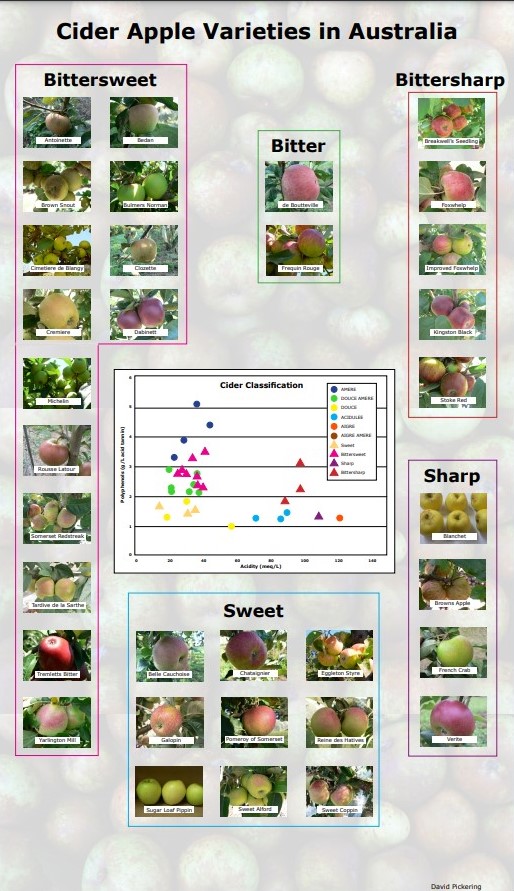
Our heritage apple orchard
One of the reasons for building our own collection is to provide grafting wood for our fruit tree nursery. This means we can offer these lesser known trees for sale and get them out into backyards.
We’ve also been lucky enough to be gifted grafting wood of a number of new varieties (big shout out to Clare Claydon and David Pickering).
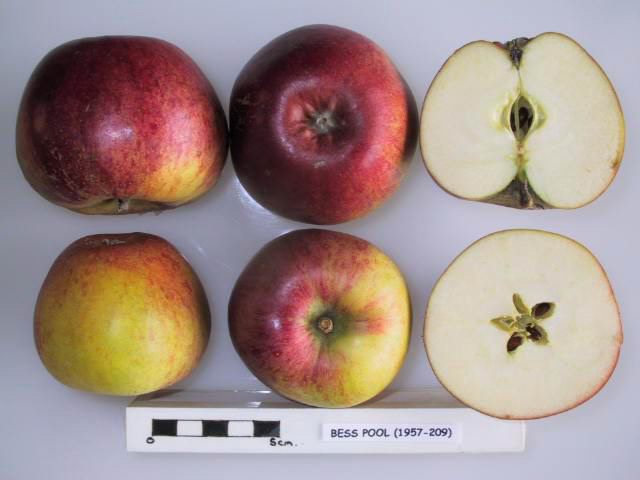
Each year, our on-farm nursery offers more than 150 fruit tree varieties for sale. Our apple collection includes more than 80 different varieties. Here are some that you’ve possibly never heard of before:
- Bess Pool
- Blenheim Orange
- Brabrant Bellefleur
- Calville Blanc d’Hiver
- Cleopatra
- Dayton
- Democrat
- Eagle Point Star
- Elstar
- James Grieve
- King David
- Menagerie
- Peasgood’s Nonsuch
- Prima
- Roundway Magnum Bonnum
- Spring Grove Codlin
- Statesman
- Sturmer Pippin
- Tasman Pride
- Tydeman’s Early
- Vista Bella
- Wild Heather
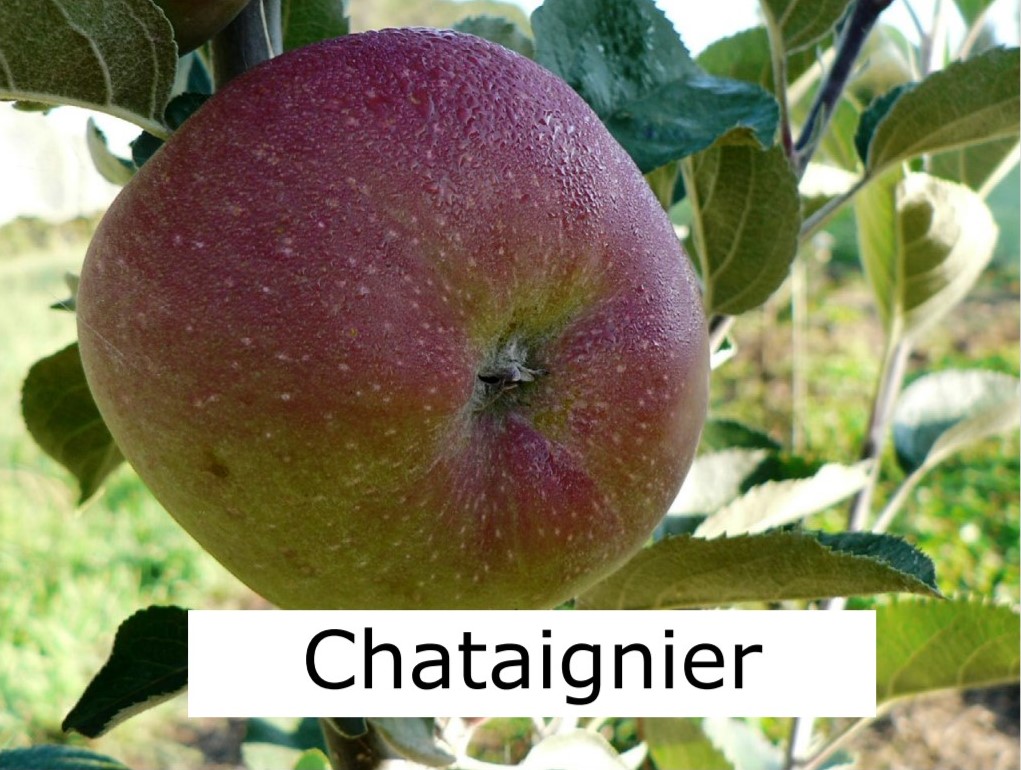
Preserving heritage cider apples
The varieties above are all mainly eating apples, though some are multi-purpose. We are also building our range of cider apples, including quite a few heritage varieties:
- Brown Snout
- Bulmer’s Norman
- Chataignier
- Dabinett
- Sweet Coppin
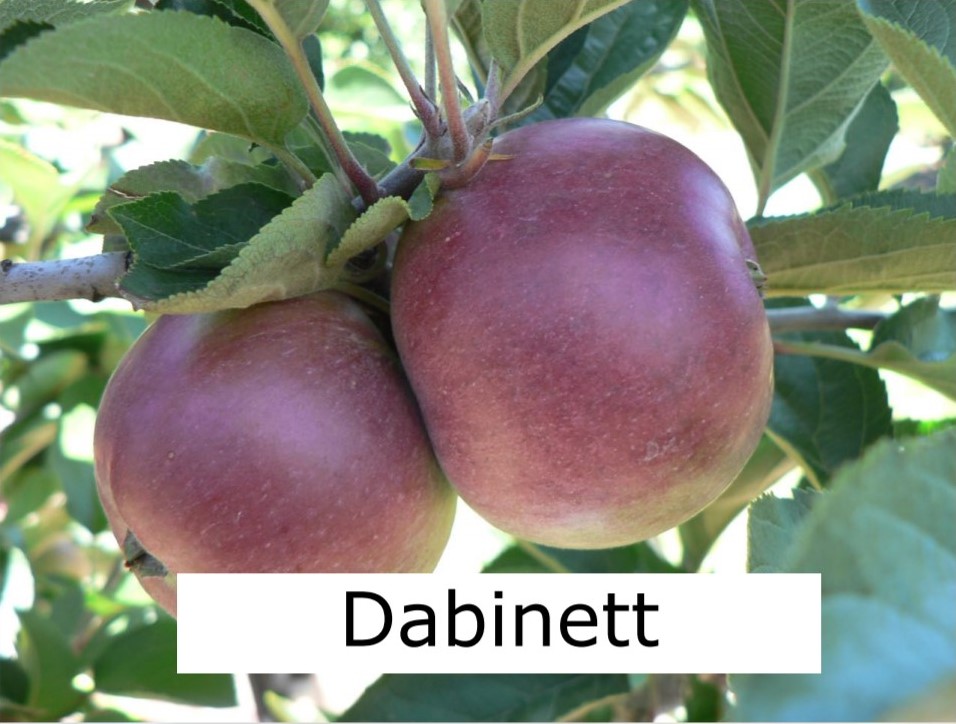
Modern vs heritage apple varieties
There are other reasons our nursery focuses on older varieties. Most modern varieties coming onto the market are patented, which means they’re not available for micro-nurseries like ours to grow until they come into the public domain, which can take 20 years or more.
But even if we could get the new varieties, we’d still stick with the heritage ones.
Someone needs to stick up for them, remember them, and try to get them into backyards. Otherwise, they might just disappear completely. That would be terrible because they’re an important part of our fruit-growing heritage and of the world’s biodiversity.
Heritage varieties are usually old varieties that have gone out of fashion or been superseded by newer varieties. This is often because they don’t have the right characteristics to suit modern food growing and transport systems.
Modern varieties are bred to suit modern food systems. They might have a ‘better’ flavour, a more uniform colour all over the fruit, have tougher skin so they don’t bruise as easily when picked, or withstand storage or transport more easily. All things which give them mass appeal to a wider audience, and make them easier to pick and transport to markets and consumers that are a long way from where they were grown, including overseas.
Celebrate the older fruit types
But just because heritage varieties don’t fit these criteria doesn’t mean they’re not great fruit! It’s just that they suit backyards better than the sort of mass-produced, large-scale fruit production that fills supermarket shelves.
Fragar peaches are a great example.
They’re stunning, huge, white-fleshed peaches. They have a delicious flavour that’s much more complex than a typical modern peach, with more depth of flavour on your palate.
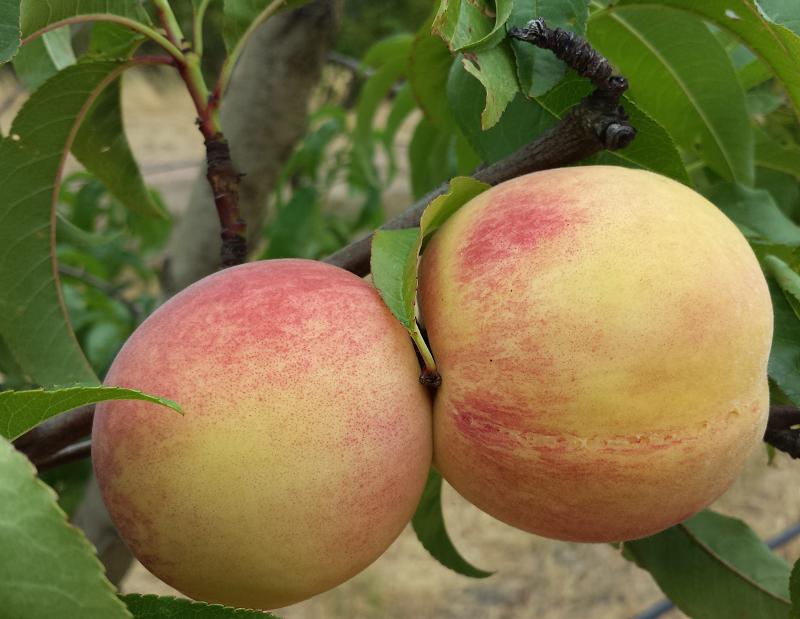
Unlike modern varieties, which tend to be more uniform in colour, these beauties have a gorgeous pale pink blush over a creamy yellow background. They’re also quite thin-skinned with soft, juicy flesh. They’re divine to look at, but they show every bruise. This is even more the case when they’ve been tree-ripened, which is definitely the best way to eat them.
They’re the perfect peach for a backyard – but not to put on a truck and send hundreds of kilometers. It’s almost impossible to buy them these days, which is such a pity, because they’re really amazing peaches.
Do heritage varieties taste the best?
The truth is, not always! Some varieties have gone out of favour because they were replaced by sweeter varieties, for example.
But even if a heritage variety isn’t the absolute best in terms of flavour or texture, it still has tremendous value.
As our food systems get bigger and more industrialised, they also get simpler. The number of different types and varieties of fruit, vegetables, and even meat in our diets has dramatically declined over the last few decades.
According to one of our favourite soil scientists, Dr. Christine Jones, modern fruit and veg have also become much less nutritious due to soil depletion, which is backed up by this research.
Christine’s theory is that these two factors – simplification of our diets, and reduced nutritional status of our food – are leading to a whole raft of health consequences for people.
So, what’s the solution?
Grow your own organic heritage fruit, obviously.
This year, let us tempt you to include an apple tree in your garden that you’ve never heard of, and become part of the movement to save our food heritage, save our fruit trees, and save our biodiversity!
Related Articles
How to tell fruit buds from leaf buds
Understanding the difference between fruit buds and leaf buds on your fruit tree makes everything else about fruit growing easier.
Will subtropical fruit trees work in your garden?
A lot of subtropical fruit comes from indigenous forest cultures, but that doesn’t mean you can’t grow it in your backyard.
Animals, fruit trees, and electric fences
Animals and fruit trees go well together if you can figure out how to enjoy the benefits without the animals doing too much damage.
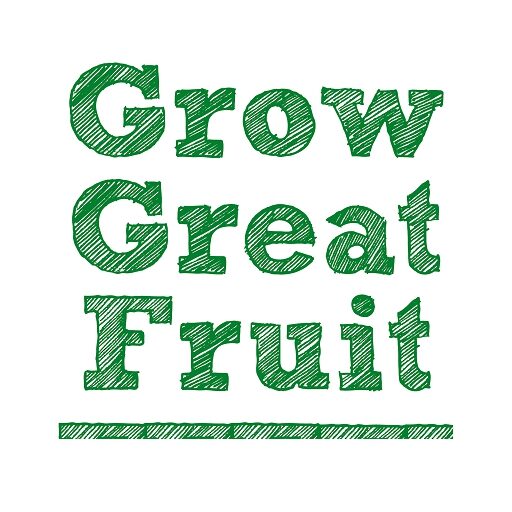
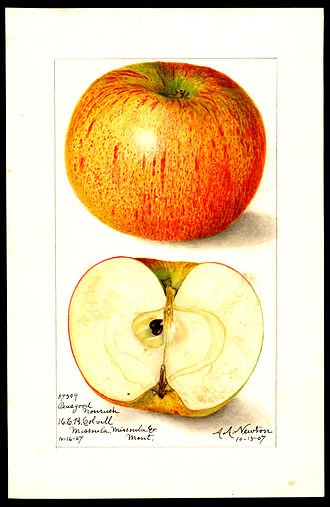
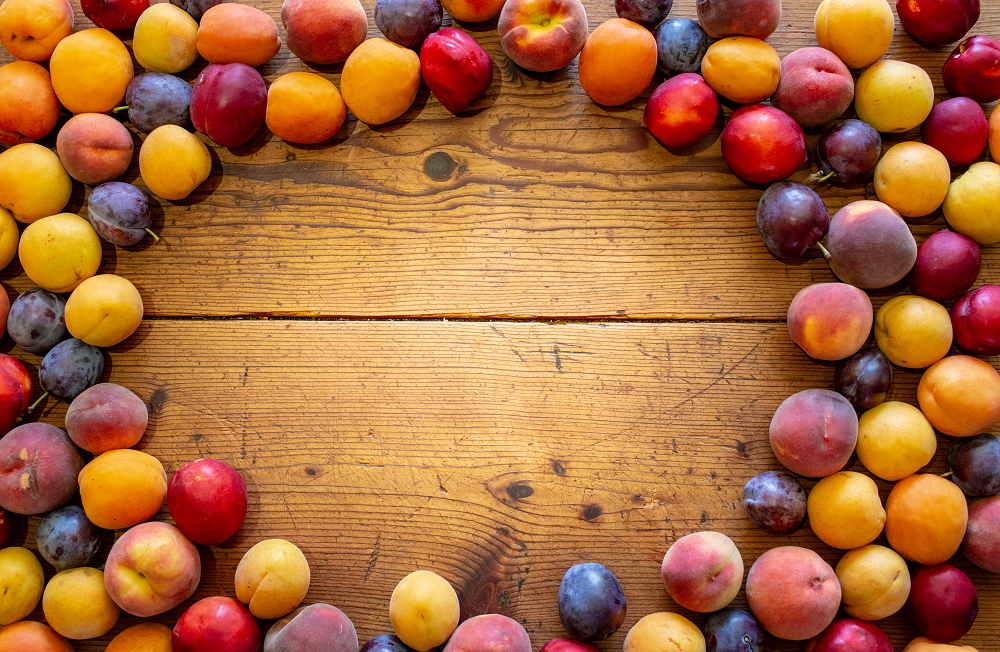
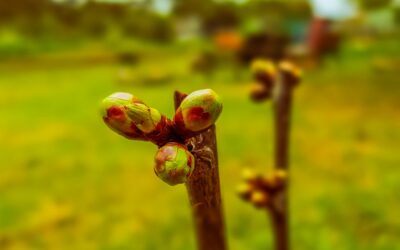
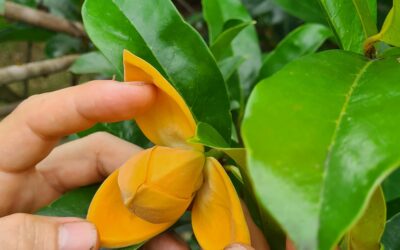
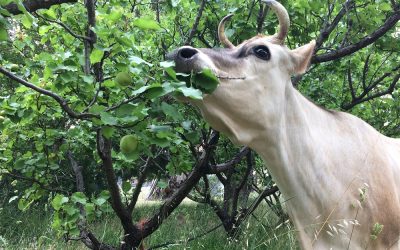
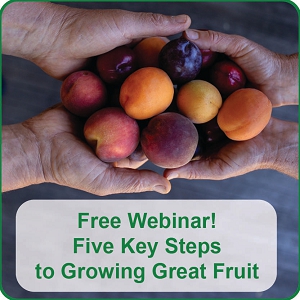
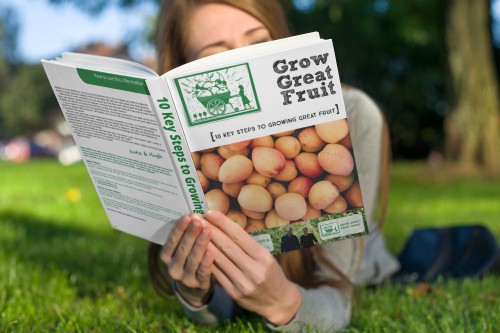
Do you know where I can get the Fragar peach to plant in Melbourne?
Hi Liz, we sell them through our on-farm nursery, called Carr’s Organic Fruit Tree Nursery – here’s the link https://openfoodnetwork.org.au/carrs-organic-fruit-tree-nursery/shop#/shop. However, we only offer pick-ups from our farm as you’ll see on the website, so you’ll need to be able to collect it from Harcourt in July. We don’t know any other stockists, sorry – that’s part of the problem with why these beautiful heritage varieties are disappearing!